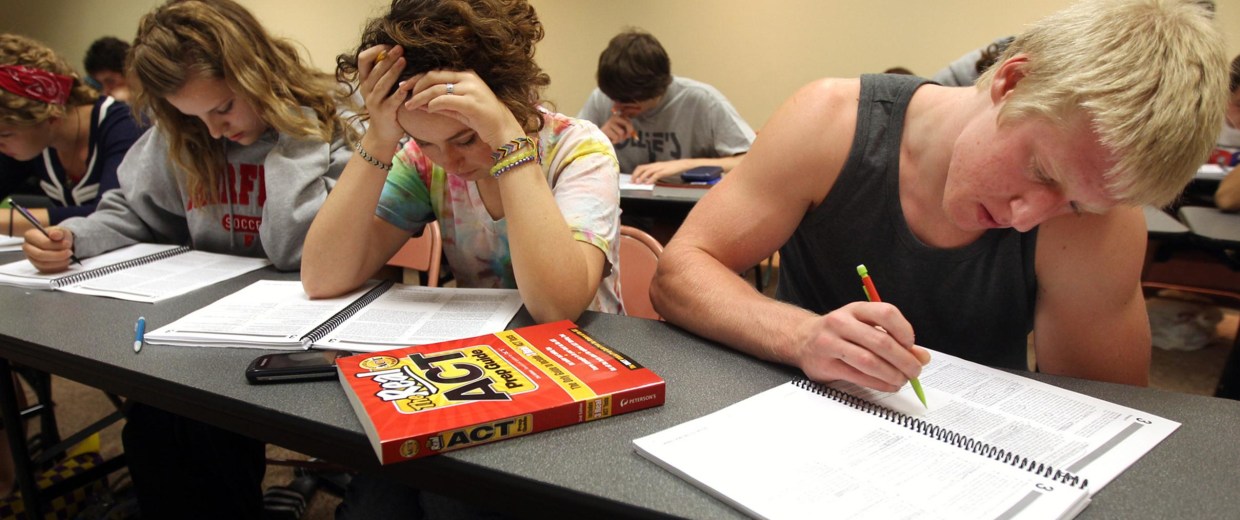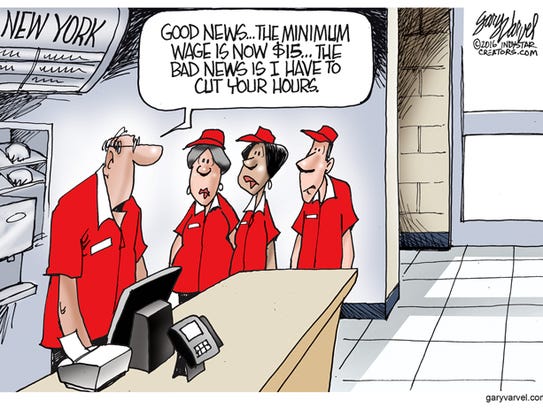Kathleen Wynn’s Liberal government has passed legislation to
raise the minimum wage by 32% - to $14 an hour as of the new year, then to $15 next
year. Wynn is selling this as an anti-poverty measure. She knows it’s not.
Really it’s an election ploy. And the people who will pay most dearly for this ploy
are young people who need work experience.
In 2013, Wynne appointed a Minimum Wage Advisory Panel. Her
panel promptly reported that “The
link between poverty and low wages is weak.” (here).
Why? In part, because most poor
people don’t have jobs or they work only a few hours a week. So for them, wage
rates aren’t relevant.
Also, the large majority of people
who earn minimum wage aren’t poor. They’re part of families that are doing
okay, and more often than not, they’re kids. According to Statistics Canada, teenagers
15–19 years old make up 50.2% of minimum wage earners in Canada. The next
largest group is 20–24-year-olds at 13.4% (here). The large majority of these
young people are living at home, and they’re not poor.
| Robots don't need a minimum wage |
For most people, minimum wage
jobs are a way to earn a bit of extra cash, and they’re part-time, or
especially for young people, they’re a way to gain workplace experience.
Jumping the minimum wage
threatens these gateway jobs. Wynne’s own Advisory Panel suggested: “teen
employment would drop by 3%–6% if the minimum wage is raised by 10%.”
If a 10% raise in the minimum
wage causes such a big job loss for teens, what will happen when it’s raised by
more than 30%?
The Financial Accountability Office estimates that this jump
in the minimum wage will cost 50,000 people their jobs (here), though “the job losses could be larger” and these losses will be “concentrated among teens and young
adults.”
The Accountability Office isn’t some right-wing think tank;
it’s an Ontario government agency responsible for giving unbiased advice so the
government of the day can make wise decisions based on the best evidence. And
the best evidence suggests that this jump in minimum wage will close the job
market to many young people.
It’s as if Wynne wants to lay the groundwork for the next
generation of poverty.
It’s easy to understand why the wage jump will cost jobs. Certainly
businesses will try to pass costs on to their customers, but a business forced
to bump up wages by 32% will also respond by laying people off or cutting
hours, cancelling plans to hire more people or automating jobs, moving
somewhere more business-friendly or just closing down.
Most places that pay minimum wage are small businesses, and
a huge jump in their costs will be enough to make many owners throw up their
hands and retire.
Youth will be the main victims of attempts to control costs
because they’re the ones who hold most of the minimum wage jobs and because the
least experienced workers get laid off first.
The toll may actually be much higher. The TD Bank estimates
the minimum wage jump to $15 will cost 90,000 jobs (here). The TD thinks the increase might be good for the economy
in the long run, but says the problem is the speed of the increase.
Letting the minimum wage float up to $15 an hour at a rate
that business can adjust to, say over four or five years, might save tens of
thousands of jobs, but it’s not going to make a big splash, and with an
election just seven months away, what good is a policy that’s merely wise?
A big jump in the minimum wage helps the Liberals, because
it takes advantage of our good nature; we’re in favour of helping poor people,
and that’s how the policy is being sold. Also, raising the minimum wage cuts
the NDP off at the knees. What are they going to offer – a $30 minimum wage?
So the $15 minimum wage will
not help poor families; it will cost 50,000 to 90,000 jobs, and it will make it
much harder for young people to enter the workforce. That seems a high price to
pay just to help Kathleen Wynn get re-elected.
Of course there are real
actions we could take to reduce poverty. For starters, we could provide very
low cost daycare and transit for the working poor. This could greatly boost the
number of poorer people entering the workforce. And that way, they’ll actually earn
money and most likely make more than minimum wage, as most grown-ups with work
experience do.
Brian Henry is a writer, editor,
creative writing instructor and the publisher of Quick Brown Fox. He has two
kids who will soon be looking to enter the working world.




I completely disagree with your political views and I'm disappointed that you chose this site which I have enjoyed to express them! I'm opting out! Merle Amodeo
ReplyDeleteHi, Merle.
DeleteSorry you feel that way. For my part, I don't mind if you disagree with me. In my opinion, differing opinions is a healthy thing.
You make some very good points backed up by facts. I had not considered the effect on young people before.
ReplyDelete